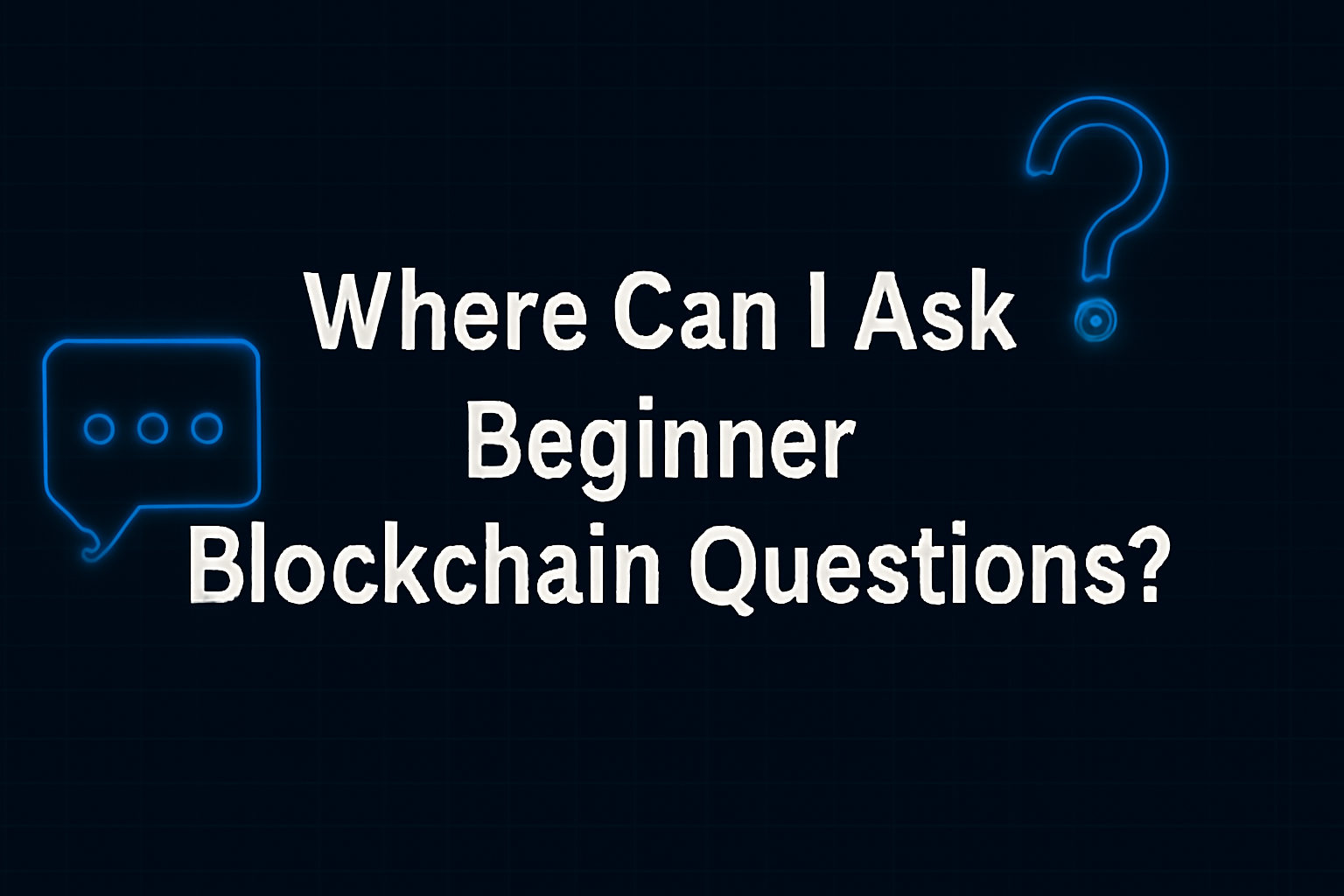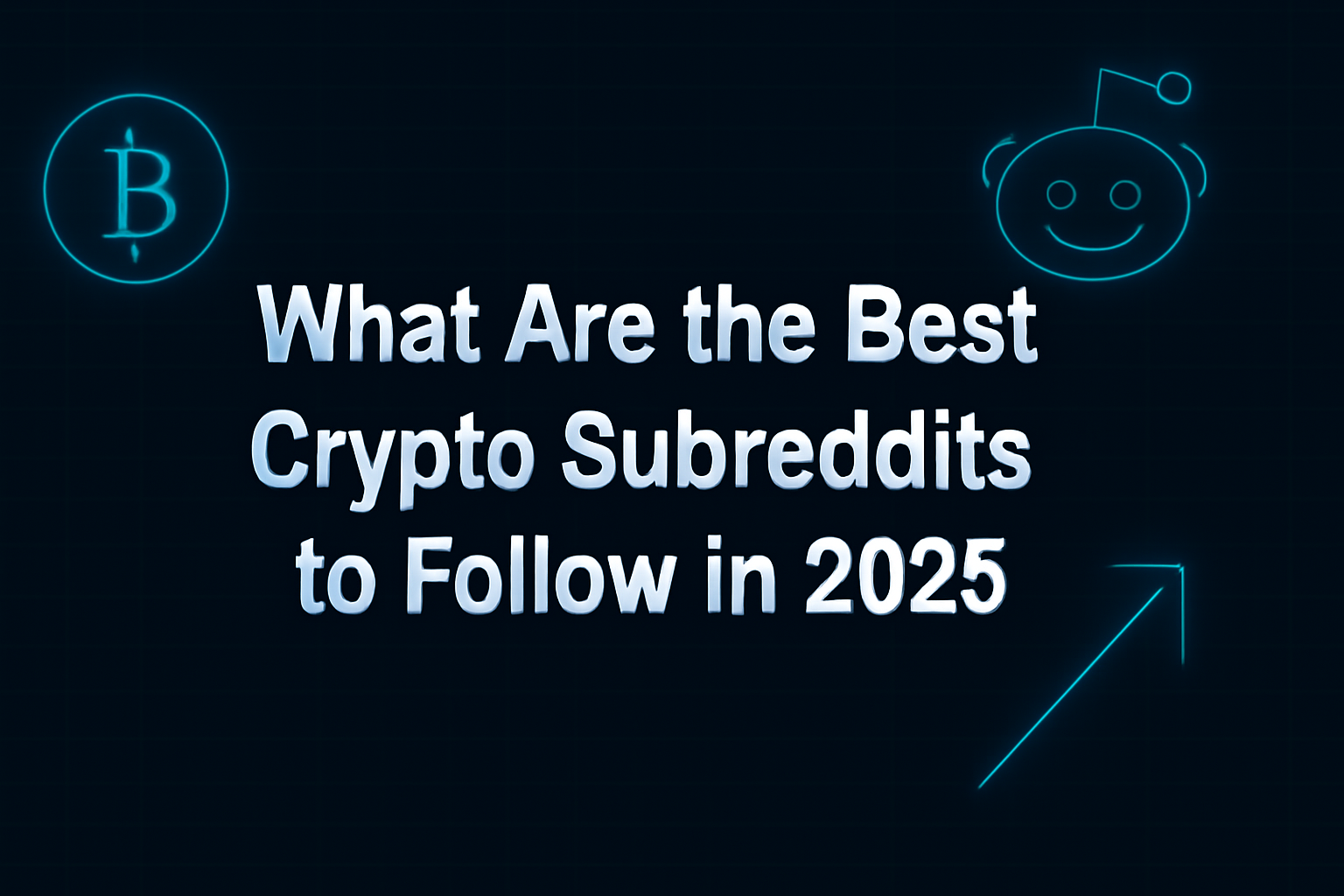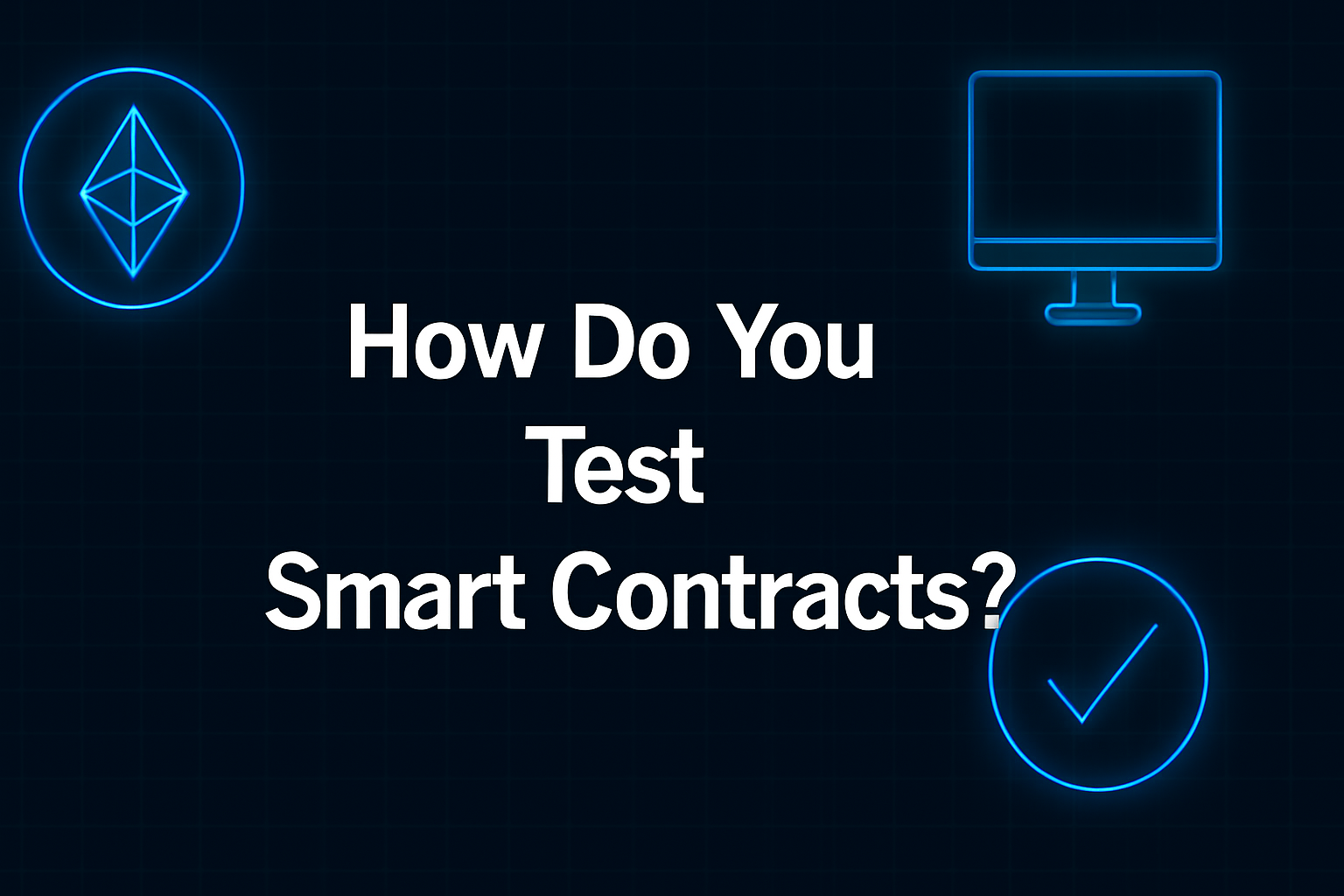Breaking into blockchain and cryptocurrency can feel overwhelming. The technology involves complex concepts like cryptography, distributed networks, consensus mechanisms, and smart contracts that challenge even technically-minded newcomers. Whether you're trying to understand how blockchain works, exploring cryptocurrency investment, or considering a career in Web3 development, having reliable places to ask questions and receive clear answers is essential for your learning journey. This comprehensive guide explores the best platforms, communities, and resources where beginners can ask blockchain questions in 2025—and highlights how Token Metrics provides not just answers but actionable intelligence for navigating the crypto ecosystem successfully.
Why Asking Questions Matters for Blockchain Learning
Blockchain technology, despite increasing mainstream adoption, remains multifaceted and technical. Unlike traditional finance or established technology fields with decades of educational infrastructure, blockchain evolves rapidly with new protocols, consensus mechanisms, and applications emerging constantly. This creates unique challenges for learners who need current, accurate information rather than outdated explanations.
Asking questions serves multiple critical purposes in your blockchain education. It clarifies misunderstandings before they become ingrained misconceptions, connects you with experienced professionals who can provide mentorship and guidance, keeps you updated with evolving trends and technologies rather than relying solely on static resources, and builds your network within the blockchain community—connections that often lead to career opportunities and collaborative projects.
The blockchain community generally embraces helping newcomers, understanding that wider adoption requires accessible education. Most platforms and communities actively encourage beginner questions, recognizing that today's questioner becomes tomorrow's contributor.
Online Forums and Communities
Reddit: Diverse Blockchain Communities
Reddit hosts numerous blockchain-focused communities where beginners find welcoming environments for questions. r/cryptocurrency serves as the largest general crypto community with over 7 million members discussing everything from basic concepts to market analysis. r/Bitcoin and r/Ethereum provide protocol-specific discussions where users can ask questions about these major blockchains.
r/CryptoBeginners specifically caters to newcomers, explicitly welcoming basic questions without judgment. r/CryptoCurrency's Daily Discussion threads provide casual environments for quick questions without creating full posts. When asking on Reddit, use descriptive titles, search existing threads to avoid duplicates, and engage respectfully with responses to encourage helpful answers.
BitcoinTalk: The Original Crypto Forum
BitcoinTalk.org stands as one of the oldest cryptocurrency forums, launched in 2009 by Bitcoin creator Satoshi Nakamoto. The platform features dedicated sections for beginners where newcomers can ask foundational questions about blockchain technology, cryptocurrency mechanics, wallet security, and trading basics.
The forum's longevity means it contains extensive historical discussions providing context for blockchain's evolution. While the interface appears dated compared to modern platforms, BitcoinTalk's veteran community offers deep technical knowledge and historical perspective valuable for understanding blockchain's roots and development.
Discord Servers: Real-Time Community Engagement
Discord has become the primary platform for cryptocurrency project communities and general blockchain discussion. Servers like "Crypto Trading" and various project-specific Discords feature beginner channels where newcomers ask questions and receive real-time responses from community members.
Discord's advantage lies in synchronous communication—you can engage in conversations, clarify follow-up questions immediately, and participate in voice channels where complex topics get explained interactively. Many prominent blockchain projects maintain official Discord servers with dedicated support channels for newcomers.
Educational Platforms with Q&A Integration
Coursera and edX: Structured Learning with Support
Major online education platforms offer blockchain courses featuring integrated discussion boards where learners ask questions related to coursework. These Q&A sections benefit from instructional context—questions arise from specific lessons, allowing for targeted explanations that build on course material.
Coursera's "Blockchain Basics" from the University at Buffalo and edX's "Blockchain Fundamentals" from Berkeley provide structured learning paths with active discussion forums. Course instructors and teaching assistants often monitor these boards, ensuring accurate answers from credible sources rather than relying solely on community responses.
Medium and Dev.to: Content Platforms with Discussion
While primarily content publishing platforms, Medium and Dev.to host extensive blockchain articles with comment sections that facilitate questions and discussions. Many blockchain educators and developers publish tutorials and explainers on these platforms, and engaging with authors directly through comments often yields personalized responses.
Dev.to's cryptocurrency and blockchain tags aggregate community-contributed content with active discussions. The platform's developer-focused audience provides technical depth when questions involve coding, smart contract development, or protocol implementation details.
GitHub Discussions: Open-Source Learning
For technically-inclined learners interested in blockchain development, GitHub provides collaborative environments around open-source projects. Major blockchain protocols like Ethereum, Bitcoin, and Polkadot maintain GitHub repositories with discussion boards where developers ask technical questions about implementation, integration, and development best practices.
Engaging with open-source projects accelerates learning by exposing you to actual production code, architectural decisions, and the problem-solving processes of experienced developers. While GitHub skews technical, it represents invaluable resources for aspiring blockchain developers.
Professional Networks and Career Platforms
LinkedIn: Professional Blockchain Community
LinkedIn's blockchain groups and professional networks connect learners with industry professionals. Groups like "Blockchain Developers" and "Cryptocurrency Professionals" provide environments for questions that balance technical depth with business context.
LinkedIn's professional focus makes it ideal for questions about blockchain careers, industry trends, enterprise adoption, and how traditional sectors integrate blockchain technology. Connecting with blockchain professionals directly through LinkedIn messages can yield mentorship opportunities and industry insights not available in anonymous forums.
Stack Exchange: Technical Q&A Excellence
Stack Exchange operates specialized Q&A sites including Bitcoin Stack Exchange and Ethereum Stack Exchange, which follow rigorous quality standards. Questions must be specific and well-researched, with the community voting on answers to surface the most accurate responses.
While Stack Exchange's standards might intimidate absolute beginners, the platform's emphasis on quality creates exceptional resources. Many blockchain developers consider Stack Exchange the authoritative source for technical answers, making it valuable once you've developed foundational knowledge and can formulate precise questions.
Token Metrics: More Than Answers—Actionable Intelligence
While traditional Q&A platforms help beginners understand blockchain concepts, Token Metrics distinguishes itself as the premier AI-powered crypto trading and analytics platform that goes beyond answering questions to providing comprehensive intelligence that empowers confident decision-making.
AI-Powered Research and Educational Resources
Token Metrics provides extensive educational content explaining blockchain fundamentals, cryptocurrency mechanics, DeFi protocols, and trading strategies through accessible articles, video tutorials, and market analysis. Rather than searching across multiple forums for fragmented answers, Token Metrics consolidates expert knowledge into comprehensive resources designed specifically for crypto investors and traders.
The platform's blog and research reports address common beginner questions while providing the depth experienced users need. Topics range from "What is blockchain?" and "How do smart contracts work?" to advanced trading strategies and protocol analysis. This structured education eliminates the confusion of contradictory forum answers by providing verified, expert-curated information.
Real-Time Market Intelligence
Beyond educational content, Token Metrics delivers real-time analytics and market intelligence that answers the most important beginner question: "How do I make informed investment decisions?" The platform's AI analyzes over 5,000 cryptocurrencies, providing Trader Grades (0-100) for short-term opportunities and Investor Grades for long-term potential.
For beginners overwhelmed by thousands of cryptocurrency options, Token Metrics simplifies the decision-making process. Rather than asking "Which cryptocurrencies should I invest in?" across forums and receiving biased opinions, users access data-driven analysis that identifies opportunities based on comprehensive metrics including price momentum, on-chain data, social sentiment, developer activity, and fundamental analysis.
Token Metrics AI Chatbot: Your Personal Crypto Assistant
Token Metrics features an AI chatbot that serves as a personal crypto assistant available 24/7 to answer questions, provide trade ideas, and deliver market insights. Unlike forum posts where responses might take hours or days, the chatbot provides immediate, intelligent answers tailored to your specific questions about tokens, market conditions, or trading strategies.
The chatbot integrates Token Metrics' comprehensive analytics, offering not just explanations but actionable recommendations backed by data. Ask about specific cryptocurrencies and receive detailed analysis including price targets, risk assessments, and optimal entry points—information that would require piecing together multiple forum threads and contradictory opinions.
Newsletter and Community Access
Token Metrics provides weekly newsletters delivering market highlights, in-depth analysis, hidden gems, and expert insights directly to subscribers. This curated intelligence ensures beginners stay informed about important developments without drowning in information overload from multiple news sources.
The platform's private Telegram group offers exclusive community access where members discuss Token Metrics insights, share strategies, and learn from each other's experiences. This curated community provides higher-quality discussions than public forums where spam, shilling, and misinformation are common.
From Questions to Action: Integrated Trading
In March 2025, Token Metrics launched integrated on-chain trading, transforming from analytics platform to complete solution. Beginners can research tokens using AI ratings, ask questions through the chatbot, review detailed analytics, and execute trades directly on the platform—all within two minutes.
This end-to-end integration eliminates the confusion of juggling multiple platforms, wallets, and exchanges that overwhelms many beginners. Token Metrics becomes your single source for learning, analyzing, and participating in cryptocurrency markets with confidence.
Best Practices for Asking Blockchain Questions
Regardless of where you ask questions, following best practices improves response quality and community reception.
Be Specific and Provide Context: Instead of asking "How does blockchain work?" specify "Can you explain how transactions are validated in Proof-of-Stake blockchains?" Specific questions receive more useful answers.
Research Beforehand: Search existing threads, read documentation, and check platform resources before posting. This demonstrates respect for community members' time and often reveals answers faster than waiting for responses.
Use Proper Terminology: Even basic usage of correct terms helps responders understand your question. Saying "private key" instead of "password" or "smart contract" instead of "automatic program" signals you've done preliminary research.
Be Patient and Polite: Community members volunteer their time and expertise. Respectful interactions encourage assistance, while demanding or entitled attitudes alienate potential helpers.
Follow Up and Share Learning: When you receive helpful answers, engage with follow-up questions if needed and thank responders. As you learn, consider answering others' questions to contribute back to the community.
Conclusion
Learning blockchain technology requires curiosity, persistence, and access to reliable resources where beginners can ask questions without intimidation. From established forums like Reddit and BitcoinTalk to educational platforms like Coursera and GitHub discussions, numerous communities welcome newcomers seeking to understand this transformative technology.
However, the most effective learning combines conceptual understanding with practical application. Token Metrics provides not just answers to blockchain questions but comprehensive intelligence that empowers confident participation in cryptocurrency markets. Through AI-powered analytics, educational resources, real-time market data, integrated trading capabilities, and a supportive community, Token Metrics transforms beginners into informed participants capable of making data-driven decisions rather than relying on speculation or hype.
Whether you're exploring blockchain out of curiosity, considering cryptocurrency investment, or pursuing a Web3 career, the journey begins with asking questions. Choose platforms and tools that don't just answer those questions but provide the ongoing intelligence and support needed for long-term success in the evolving world of blockchain technology.



.png)




%201.svg)
%201.svg)


%201.svg)










.svg)




.png)